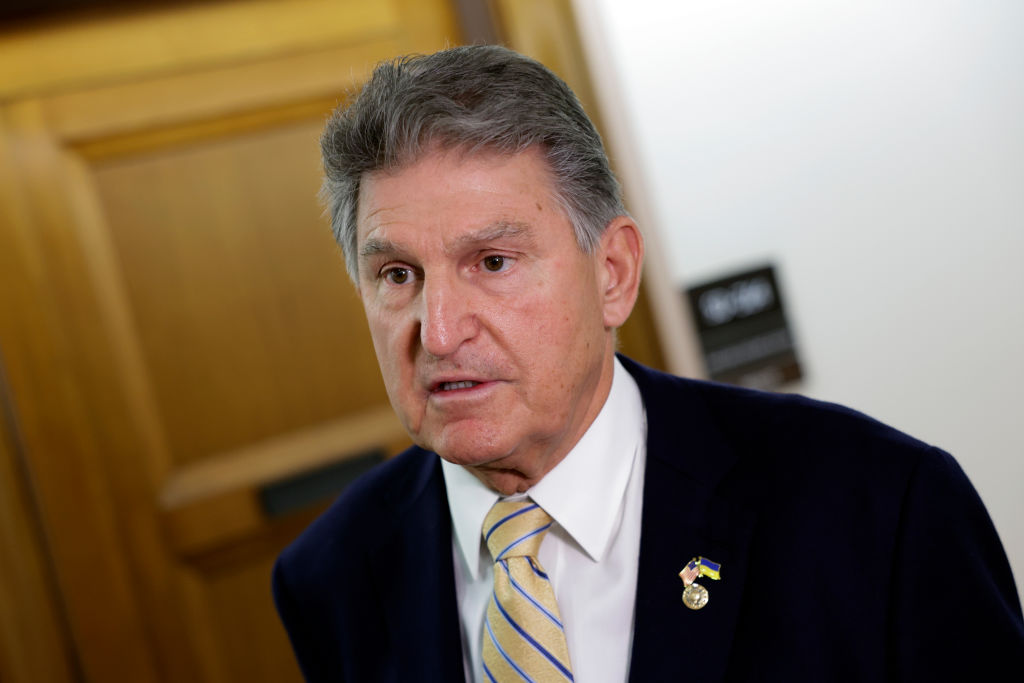I, for one, never thought he would do it. I never thought Joe Manchin, who was elected in West Virginia after running an ad in which he literally shot the 2009 cap-and-trade bill, would sign on to Joe Biden’s Build Back Better climate agenda.
Yet sign on he has. Last night, Manchin announced that after over a year of logjamming Biden’s spending plans, he’d struck a deal. The legislation he agreed to weighs in at a ballpark of $700 billion, a sharp climbdown from the $6 trillion Democrats had initially asked for. But it’s still a lot of money, and even more importantly, it’s a major psychological boost for the left. Now, barring some let-the-world-burn chaos from goth kid Kyrsten Sinema or revolt from House Dems, Build Back Better will be signed into law.
Before we get to the green stuff, let’s pause for a moment and consider the clinical insanity of dumping hundreds of billions into the economy at a time of massive inflation. The Democrats audaciously claim that the package will somehow reduce inflation. They even went back and renamed it the Inflation Reduction Act of 2022, a bit of Orwellian chicanery. They cite the bill’s tax hikes on big corporations as proof it will slice the deficit and help control rising prices.
But then they make similar claims about every spending package and the deficit only ever seems to widen. Irrespective of what you think of the tax hikes — and raising taxes amid recession fears and rising interest rates is a serious gambit — the fact remains that they’re still dumping hundreds of billions of new spending into the economy. Inflation simply means too many dollars chasing too few goods; can anyone seriously argue this won’t exacerbate the problem?
Technically the Manchin bill is nothing new. It’s the usual brew of subsidies and tax credits for renewable energy sources, the kind of thing Democrats have pushed for decades, most notably in the 2009 stimulus. The money goes out the door yet wind and solar remain just as, shall we say, unsustainable. Yet more important than the dollar amount here is the gusts into green sails. Remember: the White House wants to slash greenhouse gas emissions by 50 percent off of 2005 levels by 2030. Given that we’ve only cut them 12 percent, that’s a long way to go in only eight years.
Other nations like the Netherlands and Canada are attempting similarly steep cutoffs, and look at how that’s working out. Move this quickly and inevitably the little guy, the farmer and the fracker, gets left behind. Consider, for example, a largely overlooked provision in the Manchin plan: the methane fee. This would impose an effective tax on methane emissions, which disproportionately come from natural gas. That will hurt small-town frackers, energy consumers — the little guy, in other words, in places like West Virginia, whose interests Joe Manchin is supposed to protect.
So why did Manchin agree to this? The working theory is that he was wooed by a promise from Biden to approve the Mountain Valley Pipeline, which would export shale gas from his home state. Whatever the case, he’s signed on not just to another round of congressional horse-trading, but an agenda, one that’s all too happy in the long run to cut off the lifeblood of places like West Virginia. Here’s to wishing he’d stood stronger.


















